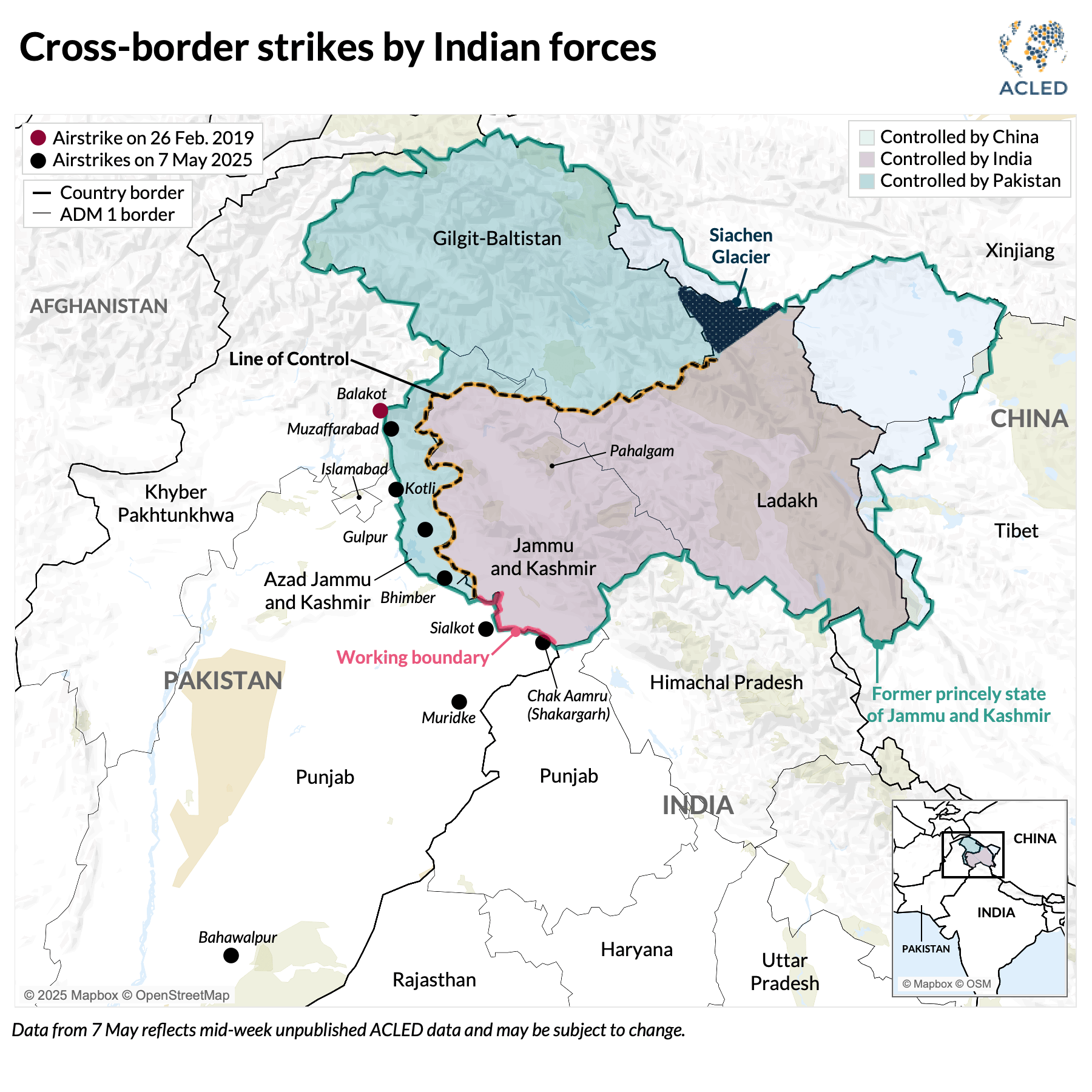Tensions between India and Pakistan have escalated once again as India carried out missile strikes targeting what it claimed was “terrorist infrastructure” at several locations within Pakistan-administered Kashmir and Pakistan on 7 May.1Flora Drury, “What we know about India’s strike on Pakistan and Pakistan-administered Kashmir,” BBC News, 7 May 2025 Among the targets were seminaries and training centers reportedly used by Islamist separatist groups, including the Lashkar-e-Taiba (LeT) and Jaish-e-Mohammad (JeM), implicated in some of the deadliest attacks within India.2Krishna N. Das and Gibran Naiyyar Peshimam, “Who are Pakistan-based LeT and JeM groups targeted by Indian strikes?” Reuters, 7 May 2025 Indian officials attributed last month’s attack in Pahalgam to The Resistance Front, which it claims is a proxy of the LeT.3Krishna N. Das and Gibran Naiyyar Peshimam, “Who are Pakistan-based LeT and JeM groups targeted by Indian strikes?” Reuters, 7 May 2025 In terms of geographic reach and impact, ACLED data show these strikes go well beyond India’s response to the 2019 Pulwama attack, when Indian warplanes struck a suspected JeM base in Khyber Pakhtunkhwa’s Balakot area after a JeM bombing in Indian-administered Kashmir reportedly killed at least 40 Indian paramilitary personnel. Early reports from Pakistan indicate that at least 26 civilians, including children, were reportedly killed in the 7 May strikes.4The Associated Press, “Live updates: Pakistan says 26 killed in Indian strikes as tensions rise after Kashmir massacre,” 7 May 2025
Pearl Pandya, South Asia Research Manager at ACLED, said:
“The writing was on the wall — tensions between the two countries had been escalating from the beginning of the year, with the 22 April Pahalgam attack worsening the situation. ACLED data show nightly cross-border exchanges between the two countries’ militaries from 22 April, while the period leading up to the attack saw more clashes between their security forces than in any single year since 2021.
“The 7 May strikes go beyond India’s response to the 2019 Pulwama attack, targeting locations deep within Punjab, Pakistan’s most populous and economically and politically significant province. While the Indian government has emphasized the ‘focused’ nature of the strikes, noting that military facilities had been spared and the strikes were aimed at thwarting ‘impending attacks,’ the civilian toll and geographical ingress mean that this may not be enough to calm tempers in Pakistan.5Al Jazeera, “‘Act of war’: Pakistan pledges retaliation to Indian deadly attacks,” 7 May 2025”
ACLED (Armed Conflict Location & Event Data) is an independent, impartial, international non-profit organization collecting data on violent conflict and protest in all countries and territories in the world.





